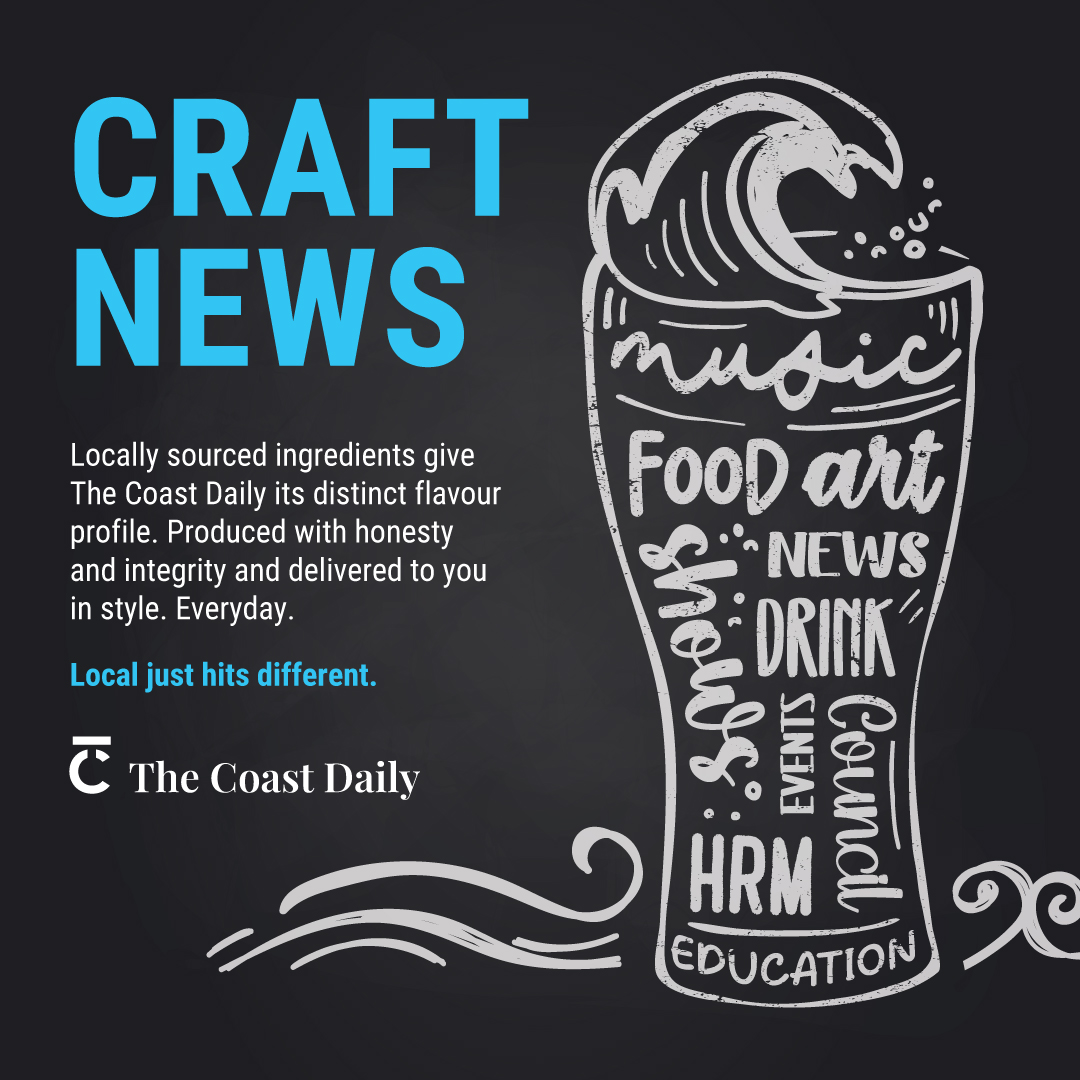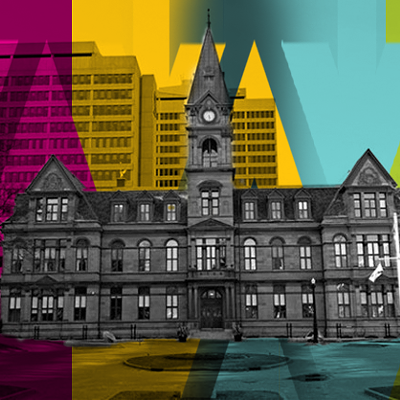If you’re in Grade 12 and don’t know what you want to do or be: don’t panic. It’s not too late. And, if you’re in Grade 10 or 11 and curious about how to even think these thoughts, PREP Academy can help. “As our coaches will tell you, there are multiple ways to get to your destination,” says Ashley Hill, founder of PREP Academy.
In 2021, Hill started the community-based nonprofit whose mission is to prepare African Nova Scotia high school students for what comes next: college, university, apprenticeships “and beyond,” she says. In its first year, PREP was just for Grade 12 students. Now, it starts at Grade 10. “It's a gradual program,” says Hill, where Grade 10 students and Grade 11 students get help through an in-school PREP Academy coach—with their own office in the school—to plan for academic life after high school.
African Nova Scotian high school students can apply now to join PREP’s in-school personal development lunchtime workshops run at the following five schools: Cole Harbour High School, Citadel High School and Dartmouth High School in Halifax; Cobequid Education Centre in Truro; and Digby Regional High School. Applications are now available here until Oct. 6 at 11:59pm. The first PREP in-school workshop will begin Oct. 21.
It’s framed as an application, says Hill, but it’s really just a chance for the PREP academic mentors to “grab a bite size of information to use as a baseline for knowing who our kids are.”
PREP has seen a 28% enrollment increase year over year, she says, with 135 students in high school last year and 53 in college and university—with kids shifting into higher grades while remaining in PREP each year. So far this year, PREP has received 102 students apply to join their high school program—and there’s space remaining.
As long as you self-identify as an African Nova Scotian born in Nova Scotia or your parents or grandparents are from Nova Scotia, says Hill, “then you’re in the program—because there's a difference between Black Canadians and African Nova Scotians and their experience with education or recent immigrants and their experience with education.”
PREP’s student success coaches work with students over lunch in the high school program to make a “pathway plan” for getting where they want to go. Hill says it starts with a lot of explaining how to channel interests into high school courses to build on later, showing students campuses and campus life, introducing them to career mentors and showing them what working in different jobs could look like working towards having a top-three list of choices for what to study by the end of Grade 10. Then, by Grade 11, students can narrow that list down, build courses, add extracurricular activities and enter Grade 12 with a good idea of what they might want to do and how to pursue scholarships to get there.
For example, say a student wants to be a nurse. What classes are they required to take in high school? What colleges and universities offer this program? More than the impossibly stumbling question of “What do you want to be when you grow up,” Hill says students are asked, “What kind of impact do you want to make?” Next, they introduce students to schools that offer programs they might be interested in—through partnerships, waiving academic fees, micro-internships over March break, campus tours and their annual college and university expo—happening this year on Nov. 23 at the Nova Scotia Community College’s Akerley Campus in Dartmouth.
This is a chance for anyone who self-identifies as a Black student, whether in the PREP program or not, to access free university applications on the spot, get prizes from schools, learn about different scholarship opportunities and meet Black student advisors working in colleges and universities. Last year’s expo had a record 15 college and universities participating at the expo. Hill says, “it's a great time: we do food, workshops, an early morning motivational speech—and we invite any community champions who have scholarships to promote to students, we invite parents—it’s really fun.”
The first PREP Academy class from 2021 is currently in the third year at university or college, with access to continuing mentorship through PREP to ease that big change from high school. According to PREP’s annual report from 2023-24, 84% of their high school graduates were accepted into post secondary education.
“Some of them don't transition right away,” says Hill, “and that's okay. Sometimes they want to take a gap year, or sometimes they go to university and think, ‘Whoa, this is not what I expected, don't like it, maybe I don't want to do criminology at SMU, maybe I want to do pipe-fitting at NSCC.’” Hill says PREP’s college and university cohort program “is as essential as the high school program.”. If, for example, a student who's never failed a class fails a class or if a student—like Hill—who's never been on academic probation is on academic probation, then PREP can support them. “It’s really like a bridge,” she says. Their goal isn’t to repeat the work of college and universities’ own Black Student Advising centres, but to make sure that students know about everything that their school has to offer.
“We act as their onboarding ambassador: here's the Black Student Advising Centre, here's the Writing Centre; make sure you book an appointment, make sure you visit and make time with your academic advisor; make sure you're having fun on campus and getting entrenched into your university or college experience.”
Now that PREP’s first cohort is nearly finished with their post-secondary studies, Hill says they’re asking PREP for help starting their careers. “Over time, we've built this really amazing talent pipeline of students who are eager to be in school and be in the workforce—and we've helped them develop their skills and bring some self-awareness and confidence to their experiences so they're ready to jump into the workforce.” Hill says the next step is for employers to get to know PREP and their students.
Hill designed PREP to support African Nova Scotian students through mentorship from African Nova Scotian coaches who come from the same communities as students and have lived experience of struggling in college or university. Hill has family ties to several historic African Nova Scotian communities, including Digby, Bear River, North Preston and East Preston.
“African Nova Scotians are a historic population that for years have not been allowed to participate in higher education,” says Hill. “As a result, when we look at anything from higher education stats to labour market stats, because we were not allowed access to education, there's a historic problem that needs to be addressed with this community.”
Hill says the reason she created PREP in 2021 was based on her own experience with higher education. After being a consistently strong student throughout high school, she found herself suddenly floundering at Dalhousie university. “There wasn't any support, anyone who looked like me, anyone who helped.”
Even to this day, Hill says when she sees someone who looks like her in a professional role, “I just feel connected—like you're going to fully understand why PREP exists, and I don't have to explain the purpose behind it or explain why our students need a little extra support.”
Hill says many of PREP’s high school students are first-generation college and university attendees, like herself. “Our goal first is to influence the social and economic impact within the historic community,” says Hill, “so that we’re changing that cycle—eventually, when our students in the program become parents, they can also help because their household incomes will be different, their lives will be different, and the trajectory for their families will be different because they’re right now pursuing a higher education and pursuing higher paying careers.”
The one drawback to PREP, says Hill, is that they’re only operating in five high schools right now. “We don't have the ability or infrastructure, at the moment, to support any African Nova Scotian student across the province—and the reason why is because we're designed to not let students slip through the cracks.” PREP coaches have a ratio of one to 50 students in high school who are there for support throughout the year. “We don't want one person to a region,” says Hill, “because then you're never able to get an answer, you're never able to have a meeting or you won’t really have a personal relationship with this coach.” With funding support, says Hill, PREP can build so that they’re in schools across the province while keeping that 1 to 50 ratio, “so that no student gets left behind.”














